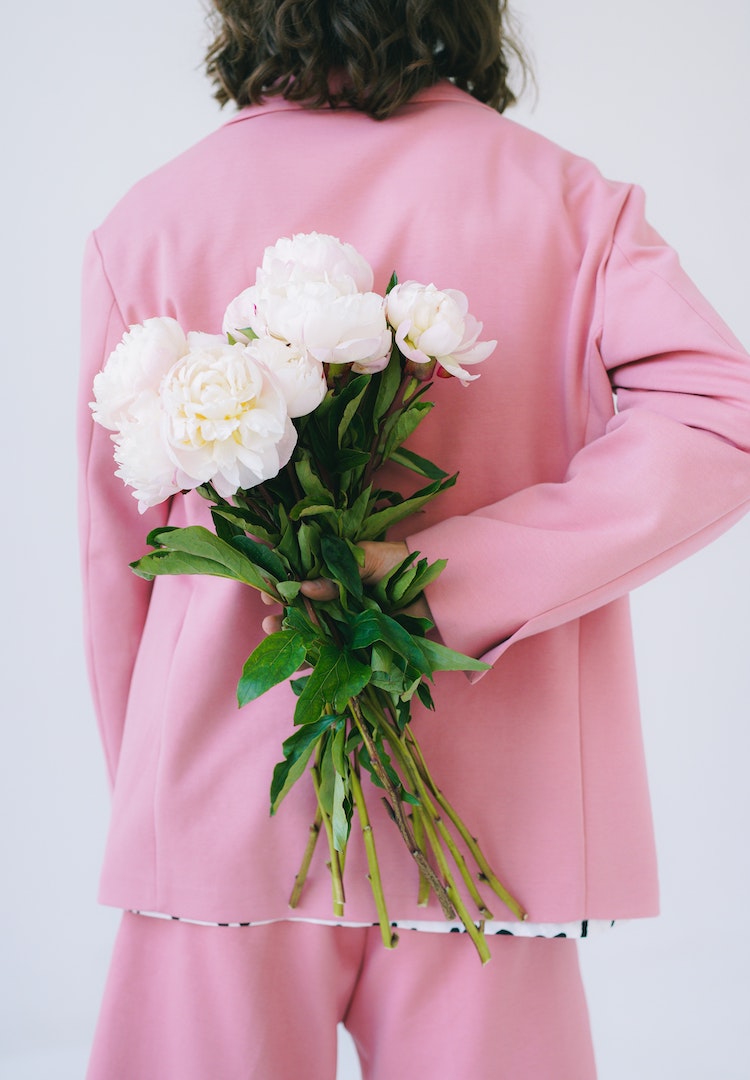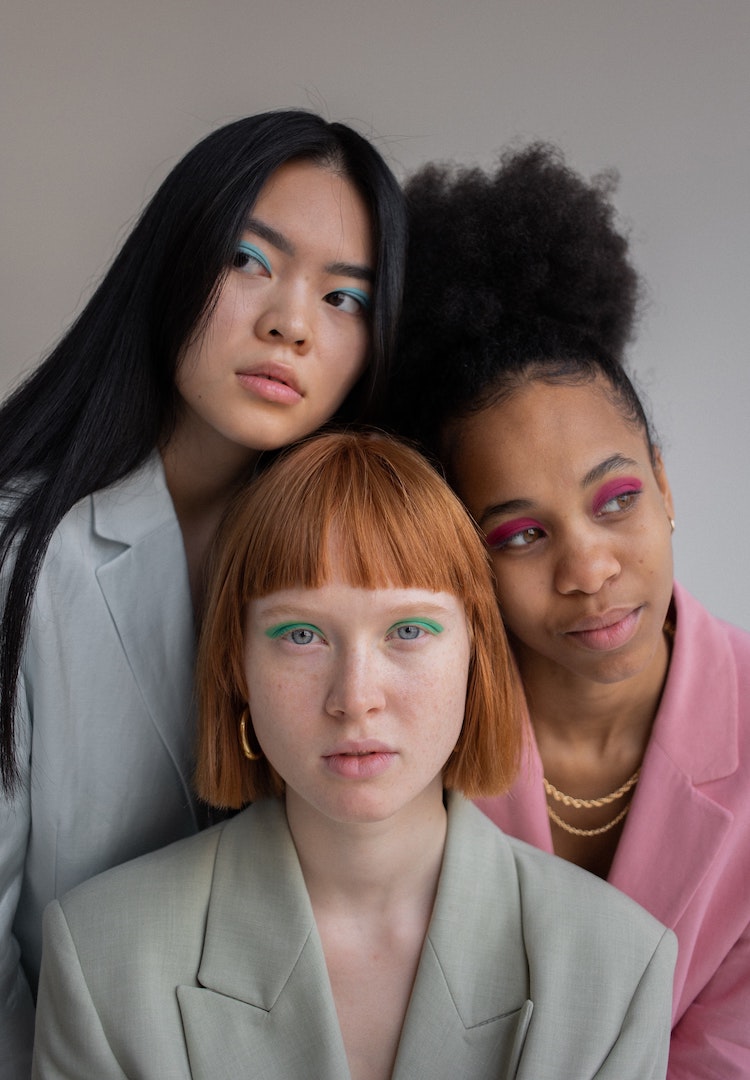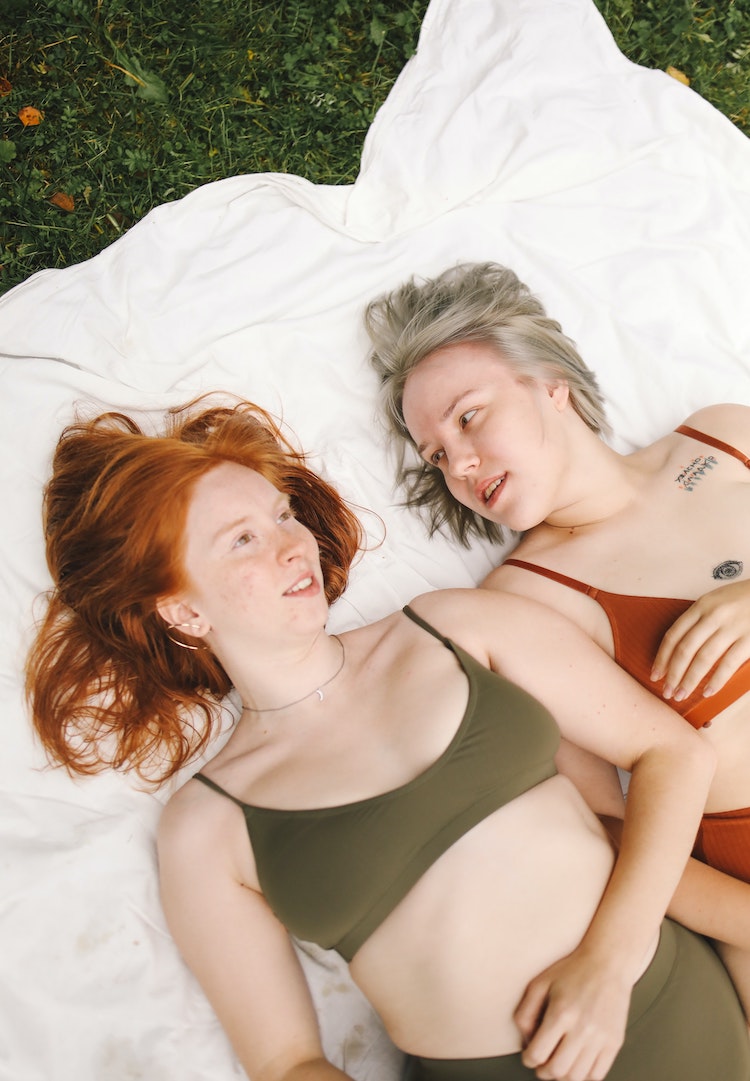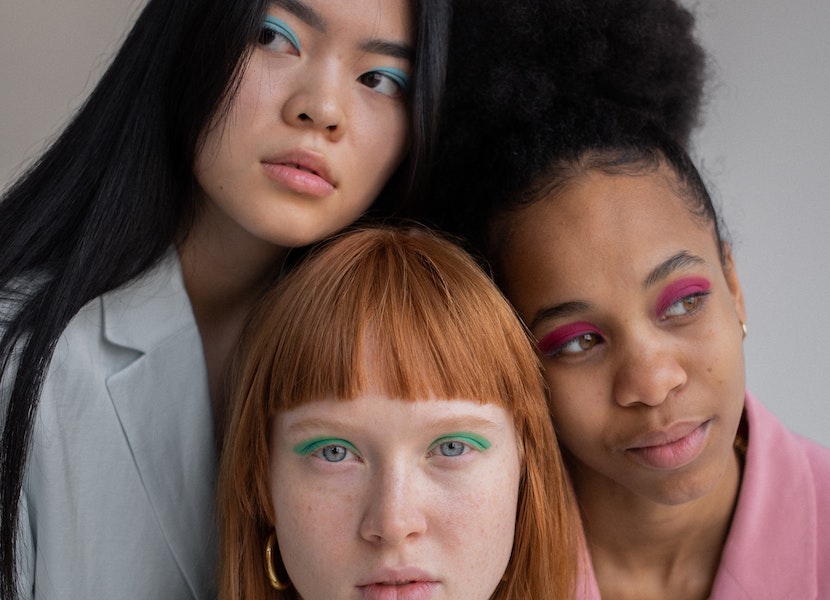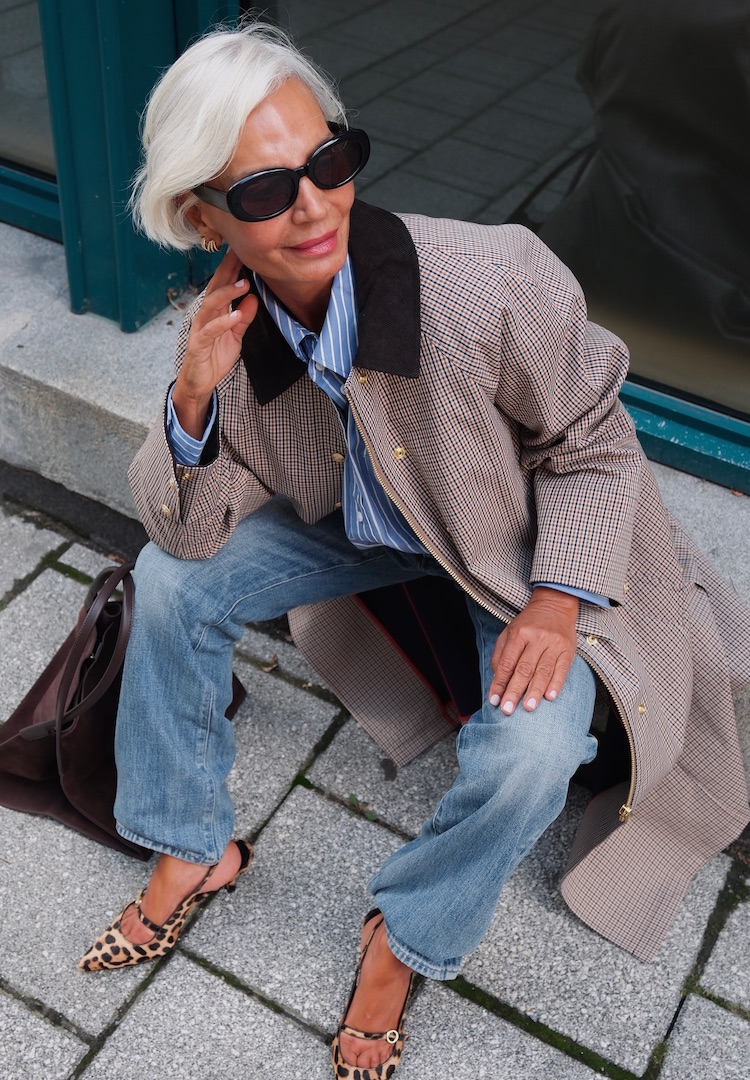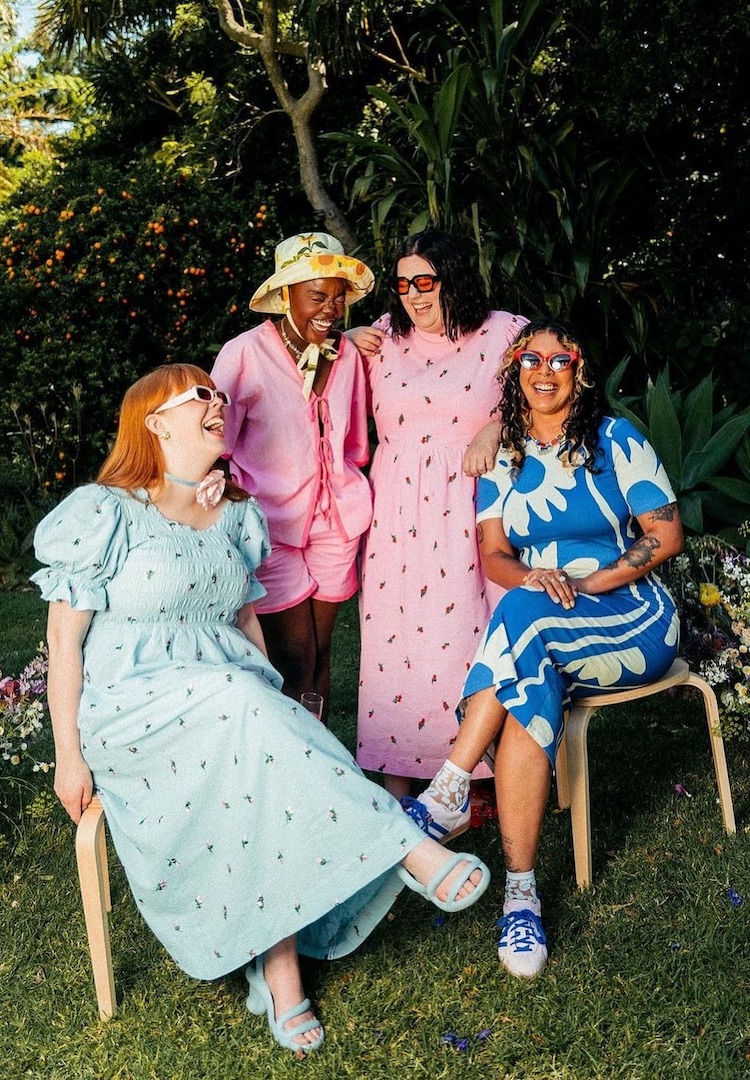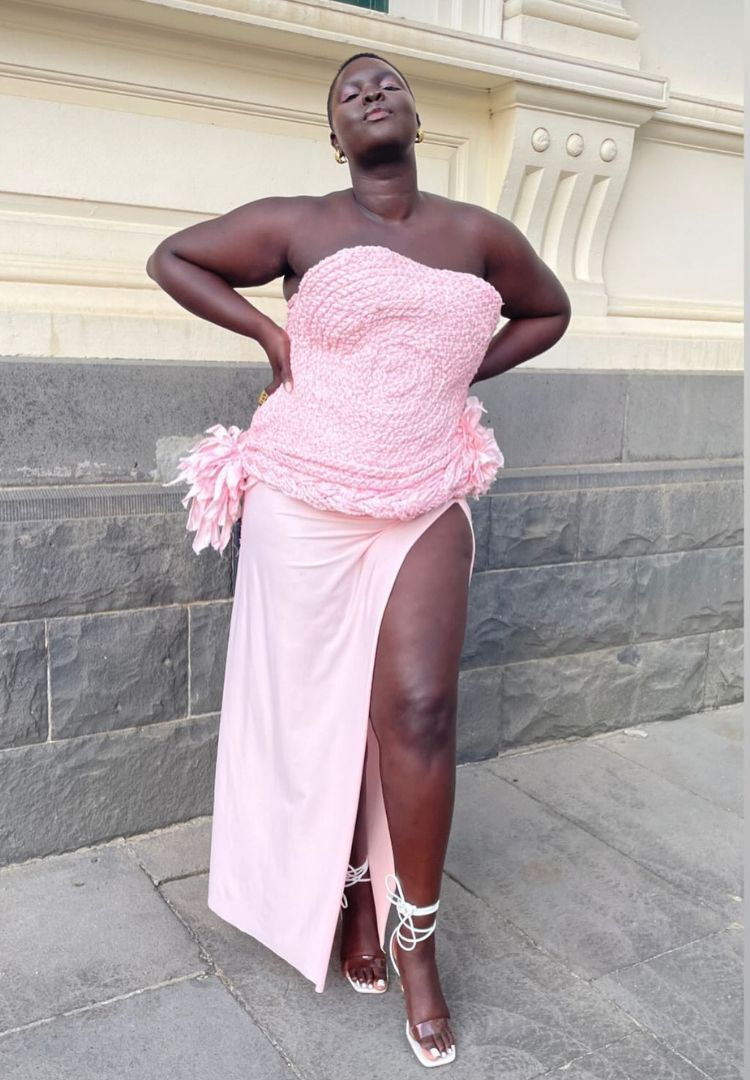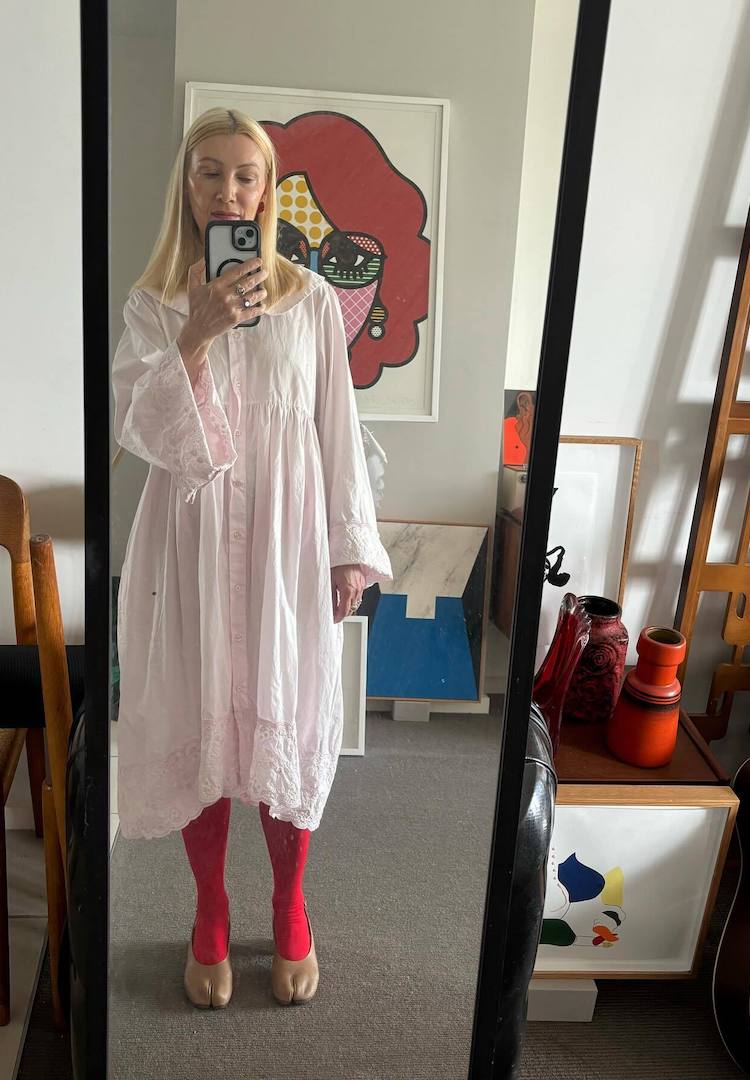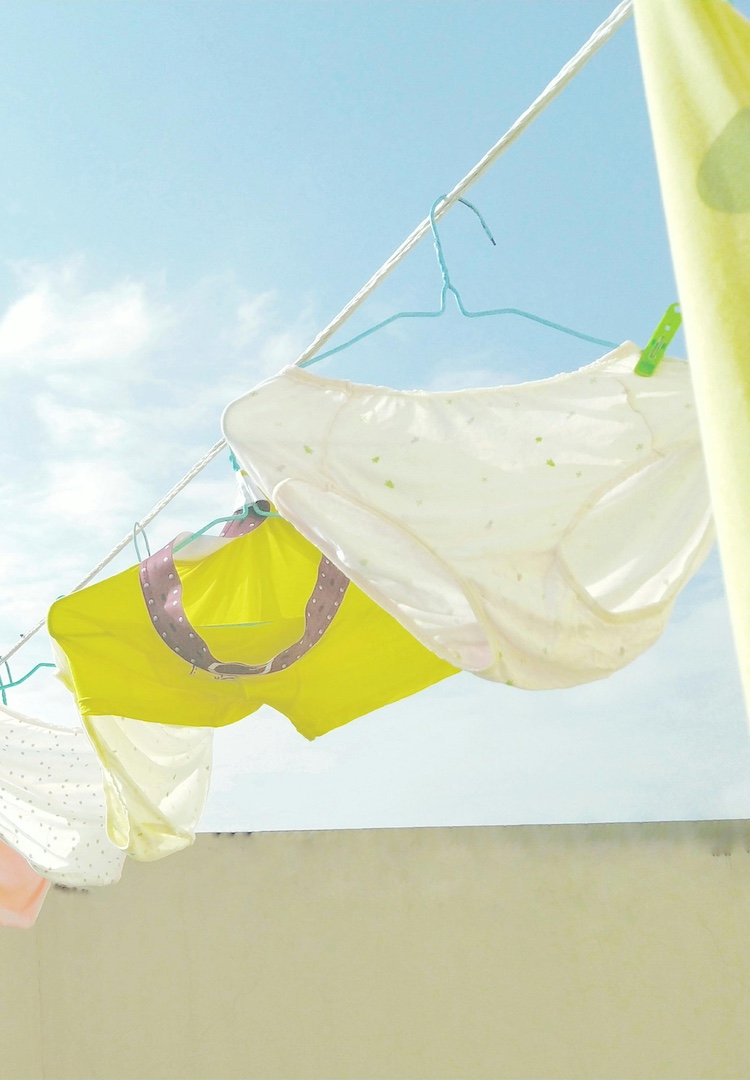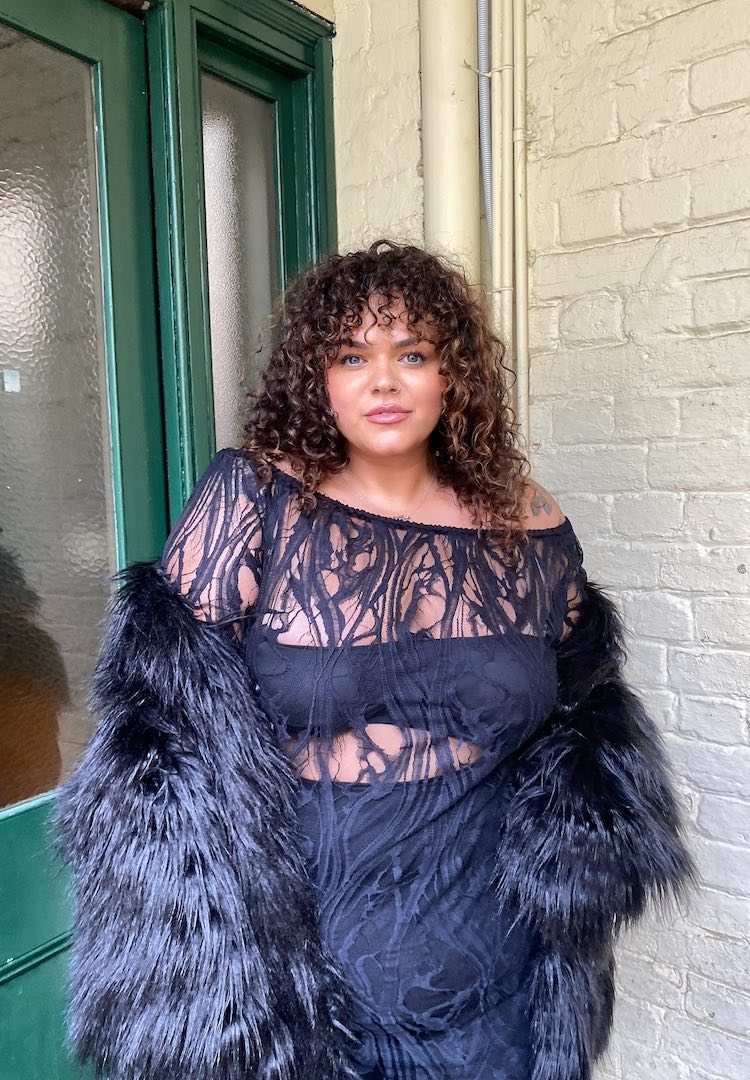Are workplace dress codes just another way to slut-shame women?
Words by Sienna Barton
“I still don’t know how to navigate the world knowing someone is probably going to have a problem with what I’m wearing.”
When I was in year eight, our year level coordinator would routinely have us stand in a line while she inspected our uniforms. She was a sturdy, foreboding woman who also taught French, and she muttered “sacré bleu” and clicked her tongue while she evaluated the appropriateness of what we were wearing.
There was skirt measuring – as is common practice at religious single-sex schools – but what I remember the most is the way she checked to see if we were wearing makeup. Holding the offending student’s chin in one hand, she’d wipe their cheek using a blank sheet of paper.
Interested to hear how others navigate the world? Head to our Life section.
While some girls fibbed and said they were only wearing fake tan, Ms Richards’* piece of paper revealed blush, bronzer and foundation. There were occasions when the paper showed no makeup, but most of the time, she triumphantly made students wash their faces on the spot.
We were told shortened skirts, broken school shoe buckles, and makeup cheapened our school’s name. As representatives of our school, we were to be dressed modestly, with makeup-free faces (except for on school concert days) and neat hair. Makeup and short dresses unnecessarily sexualised us, and we needed to embody the high standard that came with going to a school over a hundred years old.
As a hopeless rule-follower who wore a long school dress and knee-high socks, I never served as a target for Ms Richards’ thoughts on appropriate dress code. At first, I felt vindicated. A nerdy, brown-nosing kiss-arse, I grinned smarmily as those girls were forced to wash their faces, chalking up their inability to follow the rules to simple idiocy.
However, the more I saw this happen to my peers – those my friends and I quietly and cruelly referred to as the “slutty girls” – the more uncomfortable I became with the system as a whole. I wondered, ‘what does Ms Richards gain by humiliating teenage girls in front of their classmates?’
It was a lightbulb moment. I concluded that wearing makeup or having a perfectly tailored uniform were irrelevant in the way we learned. And as I got older, I realised our school was probably (but not deliberately) indoctrinating us into the way that the world polices the way women look and dress.
Just recently, the host of Good Morning Britain was criticised for wearing a “plunging” v-neck dress on air. Ranvir Singh’s critics deemed her unprofessional, saying her cleavage was ‘inappropriate’ and ‘disrespectful’ to show while reporting on the crisis in Ukraine. First off, that criticism is just batshit crazy (pardon my French). It implies that there’s somehow ‘appropriate’ clothing to wear while reporting on a devastating human rights crisis.
Secondly, describing it as plunging evokes images of J.Lo in her famous Versace dress –when realistically, the dress would probably be found in Portmans or the business section of H&M. Thirdly (and I’m so sorry for writing a paragraph in list form), I can guarantee a man would not be so heavily castigated for his wardrobe (which, realistically, he probably didn’t even choose – and neither did she!).
We saw this happen on our turf, as Today’s Karl Stefanovic made a point of wearing the same suit every day without notice, while his female co-host Lisa Wilkinson routinely copped flack for the way she looked. Our very own Prime Minister Julia Gillard couldn’t go a day without the media scrutinising her outfits.
Among comments like “ditch the witch”, the highest-ranking woman in our country was repeatedly taunted for looking frumpy and unprofessional. If poor Julia wasn’t safe from criticism, what hope did the rest of us have?
The first time I remember being sexualised based on what I was wearing, I was a mere fourteen-and-nine-months. It was the age I could legally get a job. Desperate to earn some pocket money, I found myself working at a dessert chain.
On my first day there, I was asked to stand outside the shop and hold a tray of tiny churros for people to sample. My uniform was a dark brown v-neck t-shirt, black slacks and an apron. As I held the tray of samples, I saw the middle-aged man I’d been pleasantly chatting with about toppings was looking directly at my breasts.
I lifted the tray so that the samples were almost under my chin. He walked away, but I still felt ashamed. I’d been taught at school that dressing provocatively – showing off one’s décolletage – only served to invite unwanted attention, similarly to how sitting with your legs open would distract your male teachers.
Toward the end of my three-year stint working at a beloved ‘independent’ Melbourne-based clothing label, head office introduced a formal dress code and emailed a PDF detailing acceptable looks to each store. We were told not to show bra straps, or wear sneakers (despite working long days on our feet) and to wear makeup but not too much makeup. “Think Jane Birkin or Alexa Chung,” said head office’s instructional pamphlet.
As someone at the end of their tether and sick of wearing makeup to a job where literally all of my friends were fired for being unable to meet unrealistic budgets, I scoffed. To look like either of those iconic beauties, I would need to lose the hips, bum, boobs, and brown skin. I imagine corporate’s new rules were met with similar hesitations across their many stores, as we continued to receive emails reminding us how the “[brand name] girl” should look.
After being told makeup is synonymous with sexuality for a good six years of my life, I found it tricky to reconcile that I was expected to doll myself up every day in the name of professionalism. It’s abundantly clear that when you’re a woman, people think they have the right to comment on the way we look.
I realised the rules dictating how a woman should look aren’t set in stone – often they’re in direct conflict with other rules we’ve had drummed into us our whole lives. I count myself lucky that I don’t work in an industry that requires women to dress ‘professionally‘ (those women are heroes), but I still don’t know how to navigate the world knowing someone is probably going to have a problem with what I’m wearing.
I’d love to say that we’ll see great systemic change in my lifetime, but I’m no fool. It’s 2022; a woman is being harangued for wearing a v-neck dress at her news reporter job and girls are still having their skirts measured.
Though frustrating, I guess it’s probably easiest to accept I’ll probably never get it right. I don’t know that any woman can. In the meantime – if you’re able to– I suggest blasting Xtina’s 2002 hit ‘Can’t Hold Us Down’ and wearing whatever the fuck you want. If we can’t win, we might as well be ourselves in the process.
*Name of school teacher has been changed.
To learn more about the effects of slut-shaming in schools, head here.

